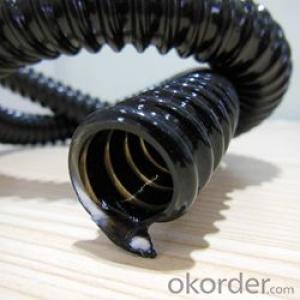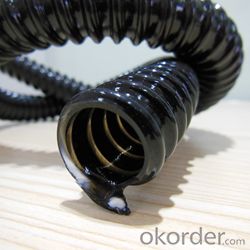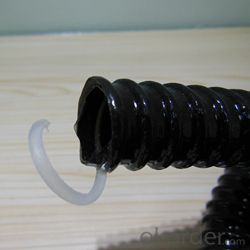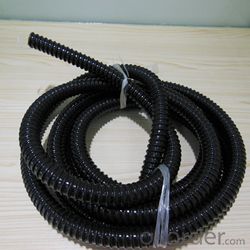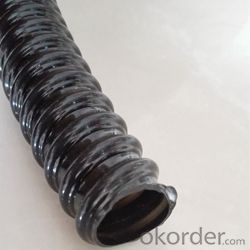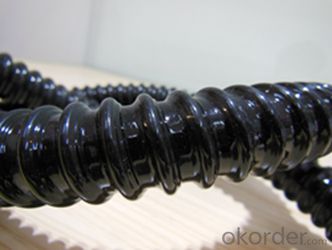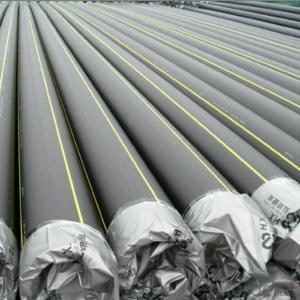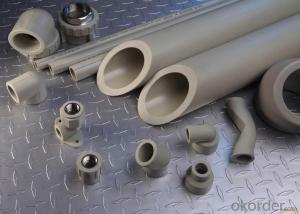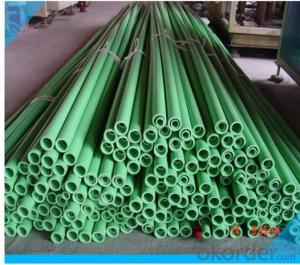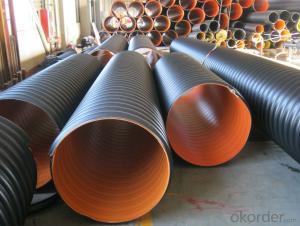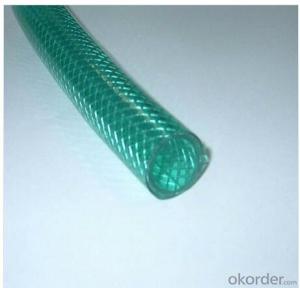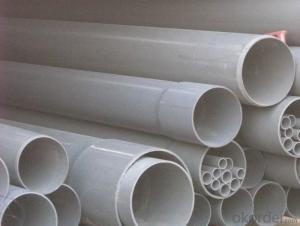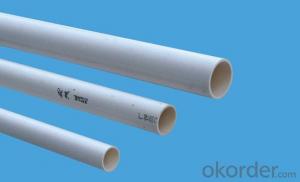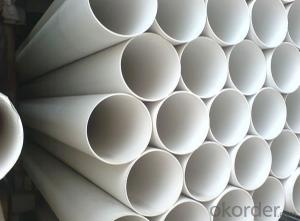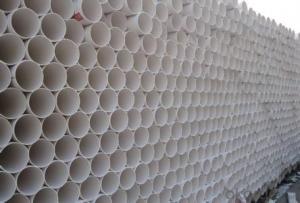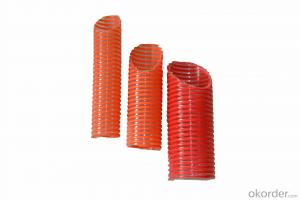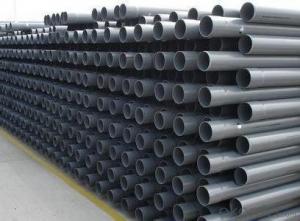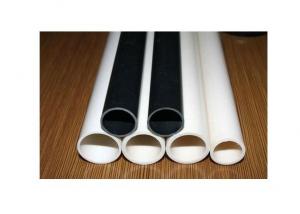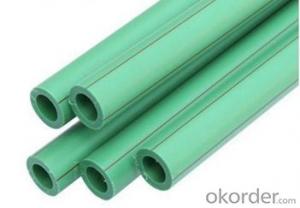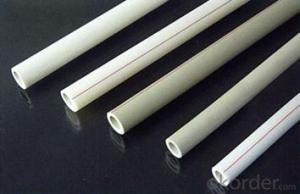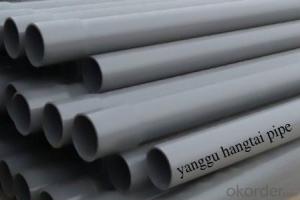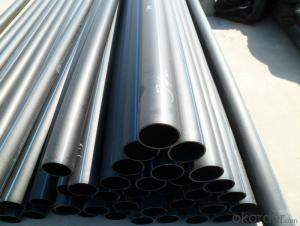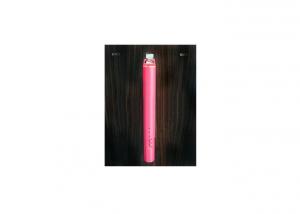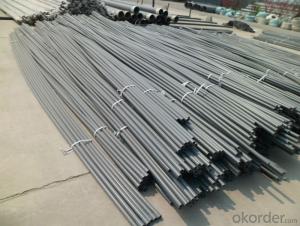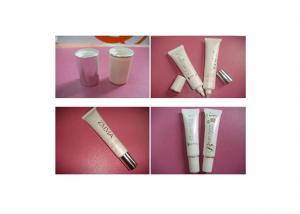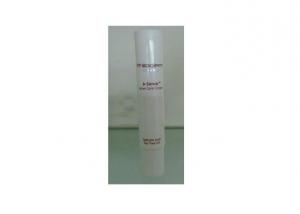Plastic PVC Winding Tubes
- Loading Port:
- Ningbo
- Payment Terms:
- TT OR LC
- Min Order Qty:
- -
- Supply Capability:
- 500000 m/month
OKorder Service Pledge
Quality Product, Order Online Tracking, Timely Delivery
OKorder Financial Service
Credit Rating, Credit Services, Credit Purchasing
You Might Also Like
specifications/function
material:PVC
Specification:16mm*20mm
spiral material:shock resistance shock resistance pvc
plastic flexible pipe(inside: smoothness)
applied range:liquid , gas and granular Conveying pipe and protective sleeve
temperature range:-10°C - + 60°C
length:0~30M
Special specification can be made at the request of customers.
- Q: Are plastic tubes microwave-safe?
- No, plastic tubes are generally not microwave-safe as they can release harmful chemicals and melt in the high heat of a microwave.
- Q: I know there are two kinds of plastic pipes: thermoplastic pipe and thermosetting plastic pipe. PPR what kind of plastic pipes do you have?
- Individuals do not feel where great harm, but also caused by bad habits.PPR no poison, a little basic chemistry knowledge, but also know that the chemical composition of PPR is not poisonous.
- Q: would this exhibit electromagnetism just like a copper wire solenoid? Could it actually be even more efficient than a copper wire solenoid?
- Only if a current(which would be limited by the resistance of the salt water or copper) was applied.So your question is which has less resistance per unit of cross section.Which would be copper.So the answer is no it wouldn't be more efficient(excess heat).Besides to do so would be a hard task what with leaks,space for the plastic tube etc. since the field is determined by ampere turns.
- Q: I have a 1 year old Robo hamster named Jewel. She has PLENTY of food (slightly chubby lol) and things to chew on..yet she is chewing on the plastic hamster tubes? She lives in a 10 gallon tank and has a silent spinner and toys (and a hut) 1.can she chew THROUGH the tube and escape? 2.can this hurt her health?
- It will not hurt her health. Any rodent is likely to do that. It is not impossible that she could gnaw her way out through the plastic. Keep an eye on it and if she makes a small hole, it is time to do something about it before she enlarges it. If she doesn't make a hole, it is fine. .
- Q: Can plastic tubes withstand high temperatures?
- Plastic tubes can withstand high temperatures to a certain extent, as their heat resistance largely depends on the type of plastic used. Some plastics, like PTFE (Teflon), can tolerate extremely high temperatures, while others may start to deform or melt at lower temperatures. It is essential to consider specific plastic properties and their intended application to determine if they can withstand high temperatures effectively.
- Q: A meat baster consists of a squeeze bulb attached to a plastic tube. When the bulb is squeezed and released, with the open end of the tube under the surface of the basting sauce, the sauce rises in the tube to a distance h, as the drawing shows. It can then be squirted over the meat.Using 1.013e+05 Pa for the atmospheric pressure and 1100 kg/m3 for the density of the sauce, find the absolute pressure in the bulb when the distance h is each of the following.(c) h = 0.140 m Pa=?(d) h = 1.10 10-1 m Pa=?
- Meat Baster
- Q: Are plastic tubes resistant to bending fatigue?
- No, plastic tubes are not typically resistant to bending fatigue.
- Q: Can plastic tubes be sterilized?
- Yes, plastic tubes can be sterilized using various methods such as steam sterilization, ethylene oxide sterilization, or autoclaving. These methods effectively eliminate bacteria, viruses, and other microorganisms, ensuring the tubes are safe for medical or laboratory use.
- Q: What is the maximum diameter-to-length ratio for plastic tubes?
- The maximum diameter-to-length ratio for plastic tubes can vary depending on the specific type of plastic and manufacturing process used. However, in general, plastic tubes typically have a maximum diameter-to-length ratio of around 1:100 to 1:200.
- Q: Can plastic tubes be used for pressure-sensitive products?
- Yes, plastic tubes can be used for pressure-sensitive products. Plastic tubes can be manufactured to withstand different levels of pressure and can be designed with features like reinforced walls or thicker materials to ensure they can safely contain and handle pressure-sensitive products.
Send your message to us
Plastic PVC Winding Tubes
- Loading Port:
- Ningbo
- Payment Terms:
- TT OR LC
- Min Order Qty:
- -
- Supply Capability:
- 500000 m/month
OKorder Service Pledge
Quality Product, Order Online Tracking, Timely Delivery
OKorder Financial Service
Credit Rating, Credit Services, Credit Purchasing
Similar products
Hot products
Hot Searches
Related keywords
